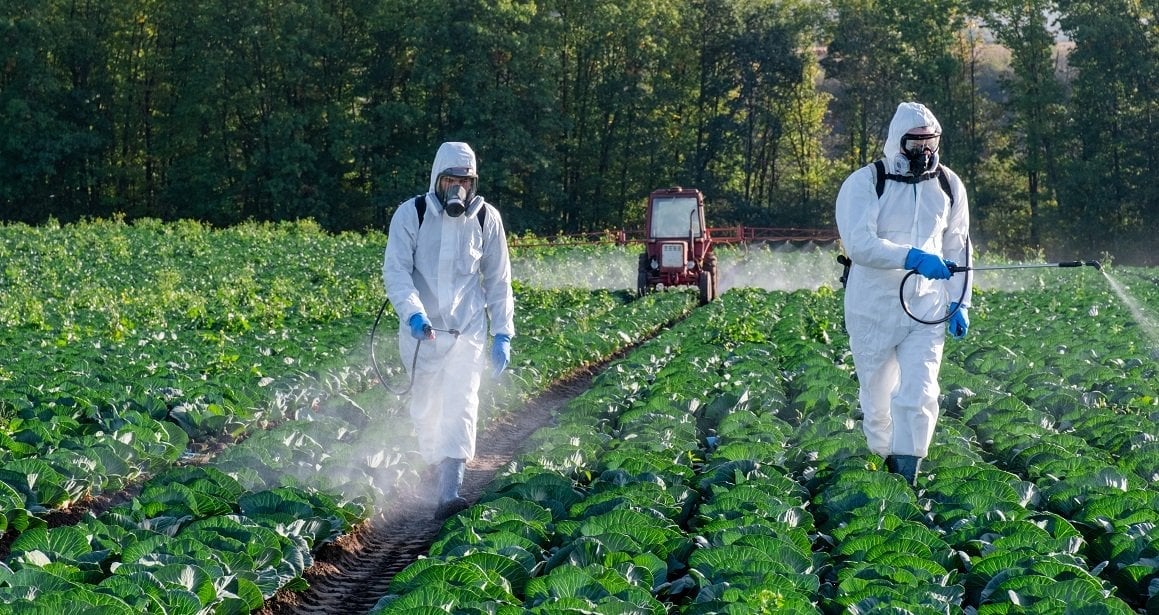Rising pesticide use in Nepali agriculture raises health concerns

Kathmandu, November 12 — The use of pesticides in crops is on the rise across the country. Farmers are increasingly using pesticides to eliminate pests and diseases in their crops, helping them grow better. However, this practice is having harmful effects on human health. Pesticides used on crops are entering the human body through food, air, and skin, and while the immediate effects may not be apparent, experts warn that long-term exposure can lead to serious health issues.
Cancer is a leading cause of death in Nepal, with an estimated 40 people dying daily from the disease. Among them, experts say 12 to 14 people die each day due to cancer caused by poor dietary habits. Medical professionals have pointed out that pesticide use in agriculture is a significant contributor to these cancer cases.
Dr. Krishna Sagar Sharma, who works at the BP Koirala Memorial Cancer Hospital, has stated that the use of pesticides on vegetables and fruits can potentially lead to cancer. He emphasized that pesticides are one of the many factors that could cause cancer, and organic food, free from pesticide contamination, should be considered part of a balanced diet.
Public health expert Dr. Sharad Wanta also linked the rise in various diseases in Nepal to the impact of pesticides. He noted that kidney failure and other kidney-related diseases may also be linked to pesticide exposure. "The number of kidney failure cases in Nepal is increasing," Dr. Wanta said, "and it is essential to investigate whether pesticides are contributing to these health issues."
Dr. Wanta further explained that while food poisoning from pesticides may show immediate effects, long-term exposure can lead to chronic health problems. "The effects of some pesticides may not be seen immediately, but prolonged consumption of contaminated food can gradually show harmful results," he added. He urged the public to be more vigilant, as immediate effects would likely prompt quicker action.
Experts also warned that pesticides can cause cancer, blood-related diseases, and ailments related to the nervous system, skin, and respiratory system. Dr. Wanta noted that the harmful effects of pesticides can be multifaceted, and prolonged exposure may even lead to genetic disorders, potentially affecting future generations.
In terms of agricultural practices, pesticide use is more prevalent in commercial farming than in products meant for personal consumption. Agriculture expert Uddhav Adhikari suggests that rather than relying on pesticides to treat diseases, farmers should focus on preventive measures, such as maintaining healthy soil. "Soil pH should be monitored, and viral diseases should be identified and managed using organic methods," Adhikari said. He also recommended using light traps for nocturnal insects and manually removing pests during the day as effective alternatives.
According to the 61st Annual Report of the Office of the Auditor General for the fiscal year 2023/24, pesticide imports and registrations have significantly increased in the past five years. Over this period, pesticide registrations increased by 86.83%, and pesticide imports rose by 46.3%. This growth in pesticide usage reflects an increasing reliance on chemicals in agriculture.
Government data shows that in the fiscal year 2019/20, 809,093 kilograms of pesticides were imported, costing Nepal NPR 956.1 million. In the following year, 681,627 kilograms of pesticides were imported, costing NPR 793.8 million. In the fiscal year 2020/21, pesticide imports reached 783,343 kilograms, with an expenditure of NPR 1.061 billion. In 2021/22, imports increased to 1,135,504 kilograms, costing NPR 1.623 billion. By the fiscal year 2022/23, pesticide imports reached 1,183,741 kilograms, with an expenditure of NPR 1.696 billion.
These statistics show that millions of rupees are spent each year on pesticide imports, raising concerns about the increasing use of chemicals in agriculture and its potential long-term health risks.









Leave Comment